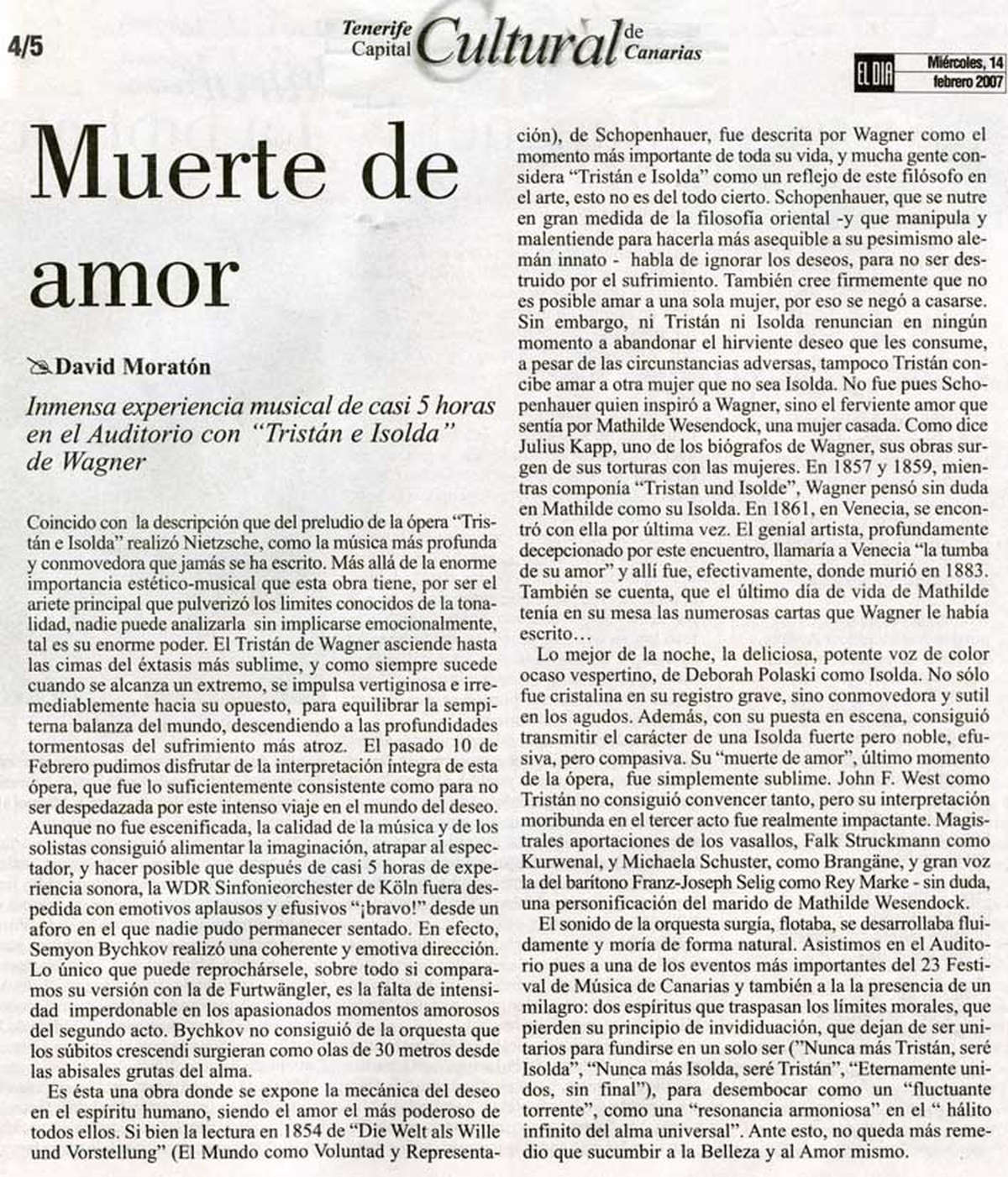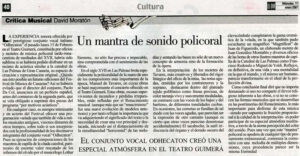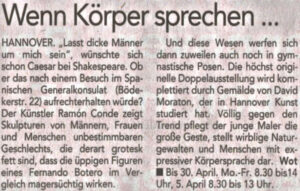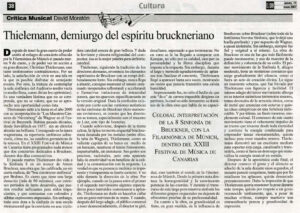Death of Love
By David Moratón
Immense musical experience of almost 5 hours in the Auditorium with “Tristan and Isolde” by Wagner
Known since the description of the opera “Tristan and Isolde” prelude by Friedrich Nietzsche and the commotion it has never ceased to provoke. Beyond the enormous importance of this work has, as it is the cornerstone piece that pulverized the known limits of tonality, filled with unprecedented harmonic implications that its enormous power. “Tristan and Isolde” ascends to the summits of the most sublime, and as always when an extreme is reached, it becomes vertiginous and irremediably leads to the opposite, to equilibrium that tempers the balance of the world, descending to the profundities formidable of suffering but also of love. On February 10th we could enjoy the complete interpretation of this opera, which the sufficiently consistent venue such as the Auditorium should be torn apart by this intense journey into the world of desire. Although the description, the quality of the musicians, and the soloists managed to nourish the imagination, capture the spectator, make possible what seemed impossible after 3 hours of experience sound, the WDR Symphony Orchestra from Cologne was placed with enviable precision and balance from the fort in which no one could remain seated. In effect, Semyon Bychkov realized a journey and envolved it in a quality impossible to surpass. The only thing that could be reproached about all this compared to the version of the Bayreuth Festival, is the filth of the unbearable painful moments of the second act. Bychkov managed to sustain the imagination, the spectator, magical imposing arrivals of the vassals, Falk Struckmann as Kurwenal, and Michael Schuster, Branigan, and even the voice of the sailor Franz-Joseph Selig as King Marke – without doubt, an exceptional interpretation of the world of Mathilde Wesendonck.
The sound of the orchestra emerged, floated, developed fluently during the whole night in liquid form. Assisted in the Audio-Rio puts one of the most important events of the 23rd Festival of Music of Canary Islands and also the staging of a miracle: the spirits that cross the moral limits, that threaten to annihilate individuality, that of the emotional – such as to sink into a single being (“Never again Tristan, will be Isolde”, “Never again Isolde, will be Tristan”, without end”), to unleash like a “fluctuating torrent, like the harmonious rapture of the infinite soul of the universe”. Before this, there is nothing left but to succumb to Beauty and to Love itself.
The best of the night, the delicious, powerful colouratura voice of Deborah Polaski as Isolde. Not only did she capture a serious and grave register, but also conductor and chorus managed to transmit the character of the fierce Isolde: noble, but compassionate. Her “death of love”, ultimate moment of the opera, was something immediately brilliant. Like Wotan from “Tristan and Isolde”, Tristan did not manage to convince as much, but his interpretation stands out for not being emotionally impatient. Magical imposing arrivals of the vassals, Falk Struckmann as Kurwenal, and Michael Schuster, Branigan, and even the voice of the sailor Franz-Joseph Selig as King Marke – without doubt, an exceptional interpretation of the world of Mathilde Wesendonck.
According to the description by Schopenhauer, it was described by Wagner as the most important moment of his entire life, and many people consider “Tristan and Isolde” as a reflection of this philosophy in art, this is not entirely certain. Schopenhauer, who died in his doctorate in Eastern philosophy – and who manifestly and maliciously made it more accessible to his pessimistic ulterior motives – believed in ignoring desires, in order not to be destroyed by suffering. He also believed firmly that there is no possible escape at the same time; therefore, that one must resign oneself. However, neither “Tristan” nor “Isolde” renounce at any moment the fatal love that unites them, in spite of adverse circumstances, neither does Tristan conceive any other love than the one he feels for Isolde. It was not the pessimistic Schopenhauer who inspired Wagner, but the exultant love he felt for Mathilde Wesendonck, a married woman. As Julius Kapp says, one of Wagner’s biographers, his works spring from the injustices of 1857 to 1859, while he was composing “Tristan and Isolde”. Wagner thought about his doubt without Mathilde as Isolde. On 1861, in Venice, he met her for the last time. The brilliant artist, deeply disappointed by the encounter, lamentably discovered that the “real” Isolde was not the effective one, where he died in 1883. It was also the story, that of a divine love, which Mathilde had at her table the numerous letters that Wagner had written to her.
El Dia, Tenerife, Spain
14 February
2007






Reviews
There are no reviews yet.